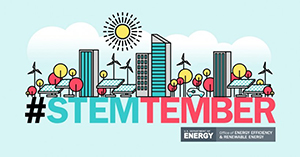The U.S. Department of Energy Office of Energy Efficiency & Renewable Energy has declared September the month to celebrate the importance of STEM education in building a better future for us all. ECS thanks its many members whose careers are dedicated to advancing science education around the world. All our members are invited to support STEMtember. (more…)
 You hear it over and over: to get your dream job, get out there and network. Here some suggestions from experts on networking during a period of social distancing. No matter what stage of career you are in—student, early, mid or advanced career—networking is useful. ECS provides a multitude of networking opportunities. Here’s how to make them work for you.
You hear it over and over: to get your dream job, get out there and network. Here some suggestions from experts on networking during a period of social distancing. No matter what stage of career you are in—student, early, mid or advanced career—networking is useful. ECS provides a multitude of networking opportunities. Here’s how to make them work for you.
Eight tips
1. Participate in digital meetings with leaders in your field. Take advantage of Q&A sessions to introduce yourself (by full name and organization) and ask questions. Then follow up with the experts through LinkedIn and emails. The 240th ECS Meeting is a great opportunity to link up with the leading authorities in the field of electrochemistry—wherever they are in the world! (more…)
Volunteers Sought to Shape the Future of ECS Continuing Education
Posted on August 9, 2021 by Shannon Reed
The ECS Education Committee recently voted to combine the Short Course Subcommittee and Career and Professional Development Subcommittee into one committee: the ECS Continuing Education Subcommittee. The conjoined committee is looking for motivated individuals to help shape the future of continuing education opportunities for the ECS community.
As the fields of electrochemistry and solid state science and related technologies continue to evolve, so do the educational needs of our community. COVID-19 changed education dramatically, forcing a precipitous shift away from the classroom to online learning. While face-to-face education can never be completely replaced, certain aspects of online learning are here to stay.
Be part of the dialog on how the Society maintains its preeminence in continuing education in electrochemistry and solid state science and related technologies—and meets the challenges of an ever-changing education landscape!
ECS continuing education programs
Industry and Careers Day hosted by ECS Pacific Northwest Section
Posted on May 5, 2021 by Frances ChavesRegister now to join the event on May 14

Graduate and undergraduate students and postdoctoral researchers interested in careers in electrochemical fields are invited to the free ECS Pacific Northwest Section inaugural Industry and Careers Day.
To promote careers in electrochemistry, the event connects participants with industry and national laboratory representatives providing insights into careers in electrochemical fields, skills valued in job candidates, and upcoming opportunities in the rapidly expanding electrochemical technology area.
You do not need to be an ECS member to participate in the webinar. You must pre-register for the event through your ECS My Account. Don’t have one? It’s easy to create–visit Create an Account now. (more…)
ECS Detroit Student Chapter Hosts Virtual Seminar Series
Posted on October 19, 2020 by Keerthana VaradhanThe ECS Detroit Student Chapter introduces “Trailblazers in Electrochemistry (Vision 2020),” a virtual seminar series featuring renowned electrochemists from across the globe discussing new ideas and long-term visions for electrochemistry research. An excellent line-up of speakers has accepted the chapter’s invitation to present oral presentations (abstracts attached):
|
Date & time |
Speaker |
Seminar topic |
|
10/22/2020 |
Professor Patrick Unwin |
“Correlative Electrochemical Multi-Microscopy: Building an Understanding of Electrochemical Interfaces from Local to Global” |
|
10/29/2020 |
Professor Adam Holewinski |
“Efforts on gaining a mechanistic understanding in electrocatalytic syntheses with renewable feedstocks” |
|
11/05/2020 |
Professor Shannon Boettcher |
“Water Dissociation Catalysis” |
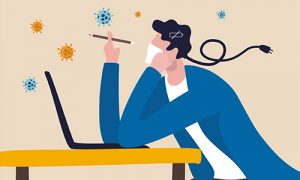 Kiana Amini, department of chemical engineering PhD candidate at the University of Waterloo, has some tips on how you can stay scientifically productive during the COVID-19 pandemic.
Kiana Amini, department of chemical engineering PhD candidate at the University of Waterloo, has some tips on how you can stay scientifically productive during the COVID-19 pandemic.
In an article published on the University of Waterloo blog, Amini says although most in-person classes, events, and research operations are now remote, which presents its challenges, it also presents many opportunities. (more…)
The Research Community & COVID-19: Grants, Awards, Extensions & More
Posted on April 23, 2020 by Jennifer Quartararo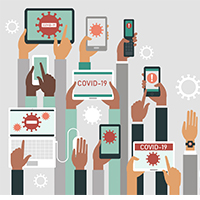 The National Science Foundation (NSF) has released a memorandum, entitled, “Administrative Relief for Recipients and Applicants of Federal Financial Assistance Directly Impacted by the Novel Coronavirus (COVID-19) due to Loss of Operations.” According to NSF, the purpose is to implement flexibilities authorized by Office of Management and Budget (OMB) Memorandum M-20-17 from specific administrative, financial management, and audit requirements contained in 2 CFR Part 200, Uniform Administrative Requirements, Cost Principles and Audit Requirements for Federal Awards, without compromising accountability requirements. The document highlights flexibilities that are applicable to NSF proposers and awardees affected by the loss of operational capacity and increased costs due to the COVID-19 crisis. Learn what they are, here. (more…)
The National Science Foundation (NSF) has released a memorandum, entitled, “Administrative Relief for Recipients and Applicants of Federal Financial Assistance Directly Impacted by the Novel Coronavirus (COVID-19) due to Loss of Operations.” According to NSF, the purpose is to implement flexibilities authorized by Office of Management and Budget (OMB) Memorandum M-20-17 from specific administrative, financial management, and audit requirements contained in 2 CFR Part 200, Uniform Administrative Requirements, Cost Principles and Audit Requirements for Federal Awards, without compromising accountability requirements. The document highlights flexibilities that are applicable to NSF proposers and awardees affected by the loss of operational capacity and increased costs due to the COVID-19 crisis. Learn what they are, here. (more…)
ECS Webinar Sponsorship hosted by IOP Publishing and PhysicsWorld.com
ECS is hosting a series of webinars presented by distinguished speakers in June. Series sponsorship gives businesses unique visibility with the electrochemistry and solid state science community. ECS Webinar Sponsorship is hosted by IOP Publishing and PhysicsWorld.com.
| Webinar Title | Presenter | Date | ECS Award |
|
Harry Atwater |
June 10, 2020 |
ECS Lecture from the 237th ECS Meeting |
|
|
Intricacies of High-Energy Cathodes for Lithium-Ion Batteries |
Arumugam Manthiram |
June 17, 2020 |
Henry B. Linford Award Address for Distinguished Teaching |
|
Electrochemical CO2 Reduction: Path Towards a Carbon Neutral Chemical Industry? |
Paul Kenis |
June 24, 2020 |
Energy Technology Division Research Award Address |
All webinars are hosted from 1pm-2pm ET. (more…)
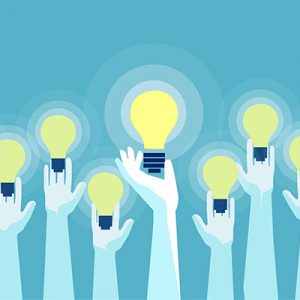 Last November, ECS Executive Director and CEO Christopher Jannuzzi and ECS Director of Community Engagement Shannon Reed attended the Chemical Sciences Roundtable (CSR) Electrochemistry Workshop in Washington, DC, which focused on the Advances, Challenges, and Long-Term Opportunities in Electrochemistry: Addressing Societal Needs.
Last November, ECS Executive Director and CEO Christopher Jannuzzi and ECS Director of Community Engagement Shannon Reed attended the Chemical Sciences Roundtable (CSR) Electrochemistry Workshop in Washington, DC, which focused on the Advances, Challenges, and Long-Term Opportunities in Electrochemistry: Addressing Societal Needs.
The event, hosted by NAS and NSF, explored how electrochemistry can transform technologies related to various applications. The focus was on the instrumentation, education, and other needs required to advance the electrochemical field. (more…)
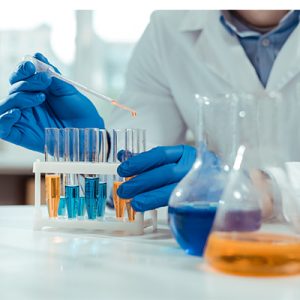 Application Deadline: January 15, 2020
Application Deadline: January 15, 2020
It’s hard to think about summer in the depths of winter, but summer will be here before you know it! The summer months can be a great time to further your career. You may be eligible for an ECS Summer Fellowship which supports graduate students from June through September who pursue work in a field of interest to The Electrochemical Society.
ECS has been offering summer fellowships since 1928. Today, as many as five recipients are selected annually to receive up to $5,000. Qualified applicants must be enrolled in a college or university, and be a member of ECS. Preference is given to activities that extend the scope of the applicant’s program of study such as tangential research topics or summer research at another institution. Review the candidate qualifications and award rules to see if you qualify!
If you meet the requirements, apply for an ECS Summer Fellowship today! ECS uses an electronic application system. The deadline is January 15, 2020. (more…)


